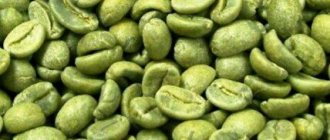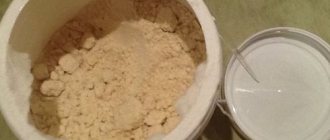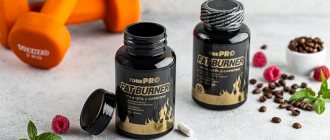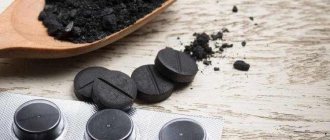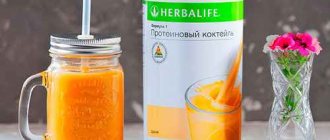Often people need to give up sugar temporarily or permanently. However, the need to eliminate or sharply limit its use creates a state of discomfort. Building new healthy eating habits takes time. It is in such situations, when a complete and immediate rejection of habitual tastes is impossible, but is necessary for health reasons (excess body weight, diabetes mellitus, various health diets), nutritionists recommend using sweeteners, reducing their use to a minimum over time. Let's look at the main classes of sucrose substitutes and their properties.
"Sorbitol": description, composition
“Sorbitol” is a drug whose active ingredient is the sugar substitute sobritol (chemical formula C6H14O6). Available in powder or solution form. They are packaged in vials, ampoules or bags. Additional components – low concentration alcohol solution or purified water.
The product should be stored in a dry, dark and cool place - in the refrigerator. Must be kept away from children. You should also avoid exposure to direct sunlight. The shelf life of the drug is 3 years.
Sorbitol for weight loss - a rowan-based sweetener
Relatively recently, sweet alcohol was discovered in frozen rowan berries. The substance received its name from the place where it was discovered – sorbitol, which comes from the Latin “rowan”. Later, sorbitol was found in apples, apricots, gooseberries, seaweed, etc.
Today E420 can be found in many food products. This could be marshmallows, marshmallows, various sweets, and chewing gum. Thanks to the properties of sorbitol, confectionery products do not dry out for a long time. It is also used in the production of soft drinks, juices, special products for diabetics and even modern cosmetics, medicines, cigarettes and energy products. True, for production purposes the substance is not obtained from rowan fruits, but is chemically synthesized.
Sorbitol tastes good and is beneficial for the human body if consumed correctly (the daily intake is no more than 40 grams). Its intake with food helps improve the functioning of the gastrointestinal tract and preserve nutrients in the body. With the help of sorbitol, many people specifically cleanse the liver. And, attention – they lose weight.
Pharmacodynamics
Sorbitol is one of the sugar substitutes. It acts as an antispasmodic and choleretic, as well as a detoxifying agent. Sorbitol is also called glucite. Chemically, it is a type of alcohol and has a sweetish taste. In the food industry it is used as an additive, which is designated E420. The sweetness of sorbitol is 2 times less than that of regular sucrose (sugar). Sorbitol is usually produced from corn starch.
The solution is used to replenish fluid deficiency in the body. It has a caloric content of 4 kcal/g. This indicator coincides with a solution of dextrose and fructose. In this case, sorbitol does not lead to an increase in glucosuria or glycemia. If taken in increased quantities, it can lead to a laxative effect and decreased bile secretion.
Often the product is produced in the form of an organic salt called potassium sorbate (sorbitol) - this is a food additive E202. It is a preservative that is used to preserve vegetables, fruits, berries, meat, fish and other products. It is used everywhere and does not pose a threat to health.
What is sorbitol?
Sorbitol has been identified in rowan fruits, and scientific experiments have confirmed the fact that it does not significantly affect blood glucose levels. The glycemic index of sorbitol is only 9, and sugar is 70.
For people, for example, suffering from diabetes, this indicator is a death sentence, because constant consumption of sugar leads to an increase in blood sugar levels, destruction of the walls of blood vessels, etc. And for those losing weight, eating fast carbohydrates will result in the deposition of fat in problem areas. This was the reason for using sorbitol in products for diabetics and dietary purposes.
In fact, sorbitol is a six-hydroxy alcohol molecule, also called sorbitol or glucite. It dissolves perfectly in water and other liquids, has no specific odor, and its properties are preserved even after heat treatment.
The calorie content of sorbitol is 260 kcal, while that of sugar is 387 kcal, but the sweetness of this natural sweetener is also 40% lower.
Today it is extracted industrially by processing corn starch, and is produced in the form of solutions in ampoules or powder in packaging. The use of sorbitol does not cause side effects if the recommended daily intake is followed. This sweetener has a laxative and choleretic effect on the body and helps cleanse the kidneys and liver.
You can learn more about the properties of sorbitol in this video:
Sorbitol: benefits and harms
Sorbitol is a good alternative to sugar. It is useful for diabetes and is absolutely necessary in case of hypoglycemic shock. Allows you to experience sweet taste. However, it can also lead to negative consequences:
- flatulence, increased gas formation;
- bloating (if the dosage is 40-50 g);
- laxative effect (if the dosage is 50 g or more);
- diarrhea;
- deterioration of fructose absorption;
- pain in the stomach;
- irritable bowel syndrome.
If permissible amounts are exceeded too much, symptoms of pathologies such as diabetic retinopathy and neuropathy may occur.
Sorbitol analogue. Pharmacodynamics and pharmacokinetics
The chemical formula of Sorbitol is C6H14O6.
Sorbitol - what is it?
As you know, Sorbitol is a substance also called glucite. It is a hexahydric alcohol with a sweetish taste and is registered as a food additive E420. The substance consists of small white crystals, quite hard, odorless, but has a pleasant taste and good solubility in water. At the same time, its sweetness is two times lower than that of regular sugar. In industry, sorbitol is obtained from corn starch.
An isotonic sorbitol solution is used when it is necessary to replenish the body with fluid. Its energy value is 4 kcal/g, which is the same as solutions of fructose and dextrose. The use of sorbitol does not increase glycemia and glucosuria. This solution is characterized by a choleretic and cholecystokinetic effect; taking higher dosages can inhibit the process of bile secretion and cause a laxative effect.
What is food sorbitol?
Food sorbitol is a natural sweetener, emulsifier, complexing agent, texturizer, and, as qualitative reactions show, a color stabilizer, moisture-retaining and dispersing agent.
This component is characterized by complete absorption and high nutritional value. It is believed that when consuming this substance, the body’s consumption of B vitamins – thiamine, pyridoxine a and biotin – decreases. Strengthening of the intestinal microflora, where these vitamins are synthesized, was also noted. However, Sorbitol is not a carbohydrate, so it is recommended in the diet for people with diabetes. The properties of the substance are preserved during boiling and heat treatment.
Potassium Sorbitol – what is it?
Potassium sorbate or E-202 is the potassium salt of sorbic acid. It is a natural preservative that is actively used for food preservation. This substance is used to preserve fruits, vegetables, eggs and confectionery products, meat and fish, fruit and berry juices, soft drinks, and so on.
Contraindications and side effects
The product should not be used in the presence of such pathologies and disorders:
- colitis of various origins;
- irritable bowel syndrome;
- cholelithiasis;
- ascites;
- intolerance or hypersensitivity to fructose.
Side effects are observed infrequently and are mainly associated with the following manifestations:
- general weakness;
- feeling of nausea;
- bloating, flatulence;
- diarrhea;
- dizziness.
Patients who suffer from decompensated diabetes mellitus may develop hyperglycemia.
Instructions for use "Sorbitol"
Dosage and other rules of administration depend on the purpose of treatment and dosage form. Sorbitol powder is dissolved in warm boiled water and taken orally 1 or 2 times a day every day, a few minutes before meals. Therapy lasts from 1 to 2.5 months.
The solution is also administered intravenously using a dropper. The maximum injection rate is a drop per second, i.e. up to 60 drops per minute. Duration of therapy is 10 days. Treatment is carried out in a hospital setting.
To wash the liver, gallbladder, biliary tract, and kidneys, the tubage procedure is used, i.e. washing. Cleaning is carried out using Sorbitol and rose hips. Take 10 dried berries, chop them and pour boiling water over them (it’s better to infuse in a thermos). After the infusion is complete (10-12 hours), add Sorbitol and drink the strained infusion in the morning. Moreover, it is also recommended to do this a few minutes before breakfast.
How to properly use sorbitol for weight loss?
The beneficial properties of sorbitol allow it to be used not only instead of sugar, but also to cleanse the liver and intestines. As a dietary supplement, it is recommended to consume sorbitol no more than 50 g per day.
If you exceed the norm, side effects of the drug may occur. However, for those wishing to lose weight, it is worth thinking about the rationality of using this sweetener, because the lower sweetness of glucite and the slight difference in calories demonstrate that it is not entirely suitable for these purposes, given the fact that its use increases appetite.
Sorbitol is most effective for tubage. This procedure will not only benefit the body, but will also help you get rid of extra pounds. Its implementation will cleanse the liver, gall bladder, ducts, remove bitterness in the mouth, improve complexion and skin condition, and remove toxins from the body.
But before you begin this procedure, you should consult your doctor. You should not perform probing with sorbitol during gestation with fever, ulcers and cholelithiasis.
To perform tubage using mineral water, dissolve sorbitol (5 g) in a glass of liquid and drink. Wait half an hour and use this solution again, then lie down on the bed and place a warm heating pad in the liver area. If after a few hours you have diarrhea and pain in the organ area, then the cleansing has begun.
You can also use rosehip decoction for tubage, it will help remove bile and delicately cleanse the liver. To do this, you should eat only foods of plant origin for several days in advance, and before the procedure itself, cleanse the intestines with an enema.
Make a cleansing decoction: place 60 g of dried rose hips in a bowl and pour two glasses of boiling water. It is advisable to do it in the evening so that it infuses overnight. Then add two tablespoons of sorbitol to the infusion and drink one glass three times a day.
You can carry out this cleansing after a few days, but no more than six times. As a result of this procedure, you will feel cheerful, get rid of chronic fatigue and gain lightness in your body.
Cleansing activities should be carried out in the morning on an empty stomach, after which you should not leave the house, because the laxative effect can make itself felt at an inopportune moment for you.
Overdose and drug interactions
Cases of overdose are observed when there is a clear violation of the permissible daily amount. Then digestive disorders and other undesirable symptoms develop:
- headaches;
- feeling dizzy;
- frequent loose stools;
- irritable bowel syndrome;
- diabetic type retinopathy;
- neuropathy.
To date, there have been no cases of interaction between Sorbitol and other drugs. Therefore, it should be taken simultaneously with any medications, regardless of the duration of the course and dosage.


